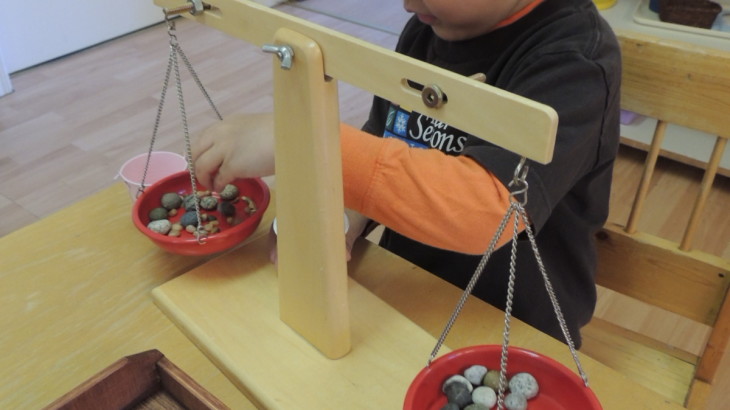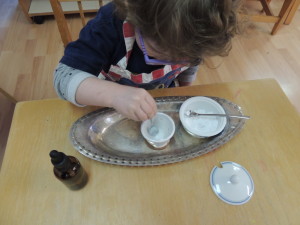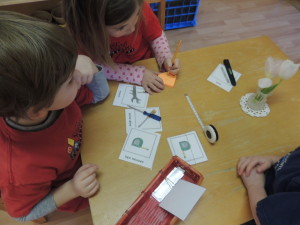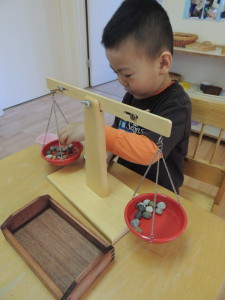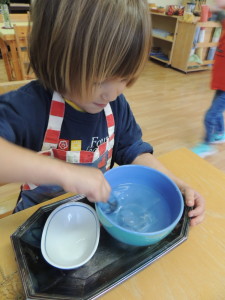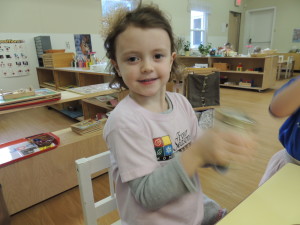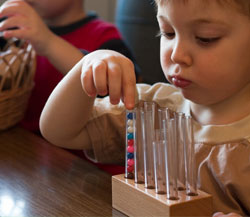Children love science!
Topics ranging from the solar system to dinosaurs to volcanoes have strong appeal. It is equally important for young children to have the opportunity to learn and practice the scientific study of experimentation: the tools, the procedures, the vocabulary and analysis.
Preschoolers have a natural attraction to the principle of cause and effect. We often observe a two or three year old pour the contents of a container out onto the floor simply to see what will happen: Will the objects bounce? What will it sound like? Will something new be revealed? The child is intuitively doing an experiment: a test done in order to learn something, or to discover if something works.
Lucy Hawking, the daughter of Stephen Hawking and an advocate of science for young minds, believes that an interest and passion for science begins at a very young age. In her Ted Talks lecture, “Science and Storytelling”, Ms. Hawking invites parents and educators to consider the importance of science. She and her father have co-authored a series of children’s books, the first titled, “George’s Secret Key to the Universe”.
Did you know that many of our renowned scientists are getting older? Of the 20 most influential scientists alive today worldwide, the average age is 71, with half of them older than 80. Here is a short list – it can be fun to ask your friends if they can name a present day scientist.
Jane Goodall, the British primatologist and anthropologist, is 82
David Suzuki, our Canadian zoologist and environmentalist, is 80
Stephen Hawking, the British theoretical physicist and cosmologist, is 75
Noam Chomsky, the American linguist and cognitive scientist, is 88
It is important that we offer science to a new generation who can continue in their footsteps. And who better to educate, than an interested young audience, who is willing to explore, experiment, and discover about the natural world.

